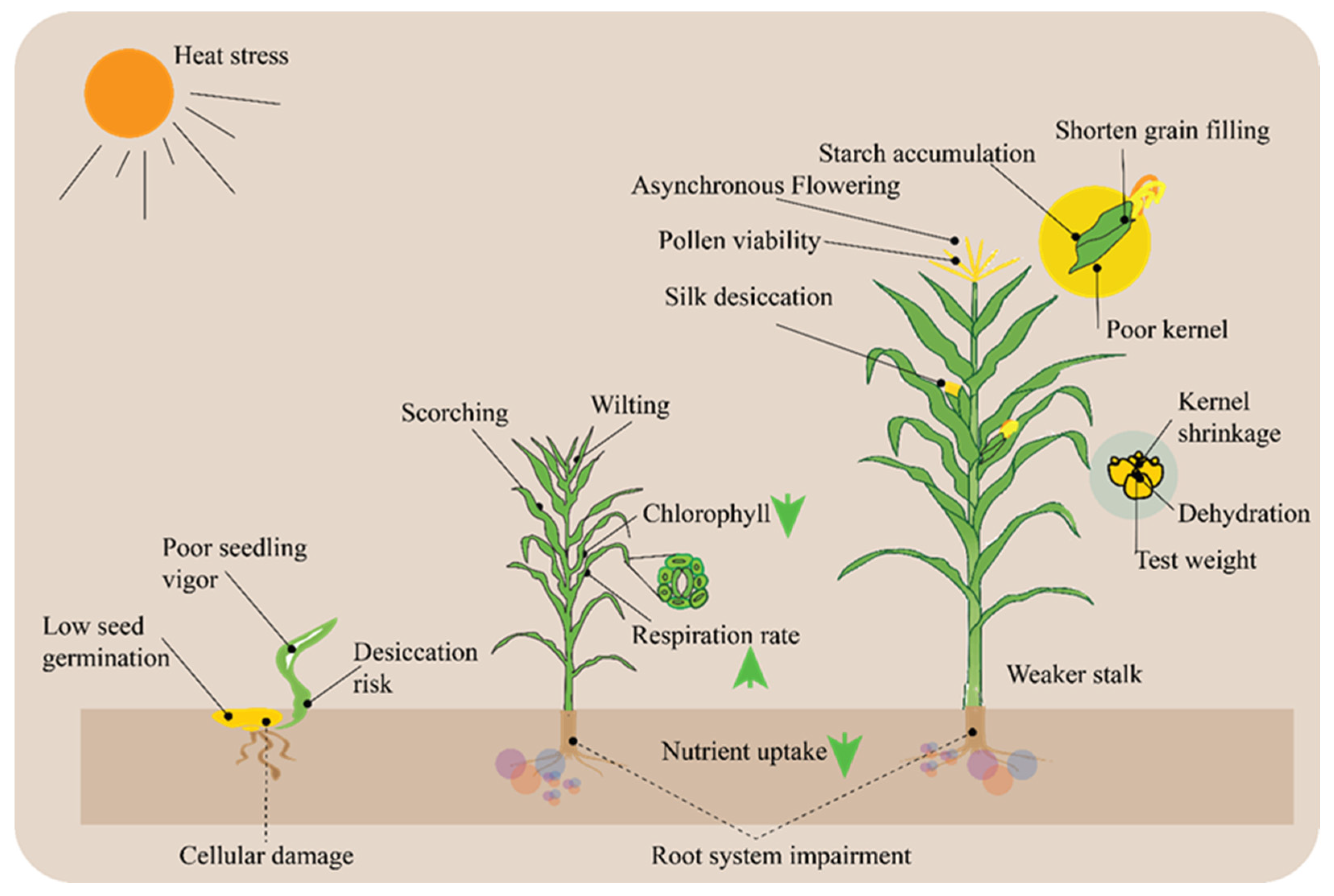ZmHSFA2d positively regulates maize seedling heat and drought tolerance by modulating photosystem protein synthesis
Yongyan Cao, Chunyu Zhang, Xuanxuan Chen, Tuo Zeng, Hongcheng Wang, Xuye Du, Xun Wu, Bin Zhu & Lei Gu
Theoretical and Applied Genetics; October 6 2025; vol. 138; article 266

Key message
ZmHSFA2d enhances maize heat and drought tolerance by safeguarding photosynthesis homeostasis, and its expression is directly activated by ZmbHLH124.
Abstract
Heat stress significantly influences plant growth, development, and productivity. Nevertheless, many maize (Zea mays) heat shock factors (HSFs) remain uncharacterized. Here, we explored the role of ZmHSFA2d in thermotolerance. ZmHSFA2d transcript levels were notably elevated under heat shock. ZmHSFA2d localized to the nucleus and displayed transactivation in yeast. Under heat shock, ZmHSFA2d-overexpressing maize seedlings exhibited greater thermotolerance, increased antioxidant enzyme activities, and reduced reactive oxygen species (ROS) and malondialdehyde (MDA) contents compared to control lines; however, these effects were reversed following the CRISPR/Cas9-mediated knockout (KO) of ZmHSFA2d. RNA-Seq analysis revealed that the expression of genes encoding ribosomal proteins, including those associated with ribosome assembly and translation progress, was significantly decreased in ZmHSFA2d-KO plants. Quantitative proteomic analysis further indicated that compared to control, the expression of key proteins [chlorophyll a/b binding proteins and NAD(P)H dehydrogenase (NDH) complex subunits] in photosystem was significantly decreased in ZmHSFA2d-KO lines. Furthermore, using Y1H, EMSA, Dual-Luciferin assays, and maize mesophyll protoplast expression, we found that ZmbHLH124, which is responsive to both heat and drought stress, directly upregulated the transcript levels of ZmHSFA2d. Additionally, ZmHSFA2d positively modulating maize drought tolerance, and compare to WT, ribosomal protein genes in ZmHSFA2d-KO plants also notably decreased under drought stress. Overall, our results indicated that the ZmHSFA2d positively regulates maize heat and drought tolerance by modulating the protein synthesis. This study contributes to the understanding of the role of HSFs in maize thermotolerance and offers useful genetic resources for the breeding of multiple stress-tolerant maize varieties.
See https://link.springer.com/article/10.1007/s00122-025-05052-1
Views: 21


